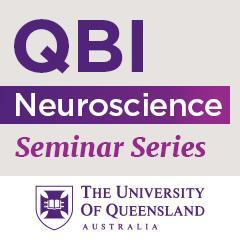Professor Shiqing Cai, China : "The neural basis of age-related behavioral decline"

Speaker:
Professor Shiqing Cai
Institute of Neuroscience (ION)
Chinese Academy of Sciences
Shanghai, China
Title: "The neural basis of age-related behavioral decline"
Abstract:
Aging is accompanied with behavioral and cognitive decline. The neural basis of age-related behavioral decline is largely unclear. We report that serotonin (5-HT) and dopamine (DA) level decrease with age in C. elegans. The reduction results in deterioration of some important behaviors, including pharyngeal pumping, food-induced slowing responses, and male mating. Longevity manipulations differentially affect the age-related decline in neuronal level of 5-HT/DA and dietary restriction preserves healthy behaviors in aged worms partially by sustaining a high 5-HT/DA level. Furthermore, we find that C. elegans isolates show diverse lifespan and age-related decline in mating virility, pharyngeal pumping, and locomotion. DNA polymorphisms in a novel peptide-coding gene, named regulatory-gene-for-behavioural-ageing-1 (rgba-1), and a neuropeptide receptor gene npr-28 influence the rate of age-related decline of the worm mating behaviour, suggesting that natural variation in neuropeptide-mediated glia-neuron signaling modulates ageing rate. In addition, through genome-wide RNA-interference-based screening of genes that regulate behavioural deterioration in ageing C. elegans, we identify 59 genes as potential ageing modulators. Among these modulators, two neuronal epigenetic readers BAZ-2 and SET-6 accelerate behavioural deterioration in C. elegans by repressing the expression of nuclear-encoded mitochondrial proteins. The mechanism is conserved in cultured mouse neurons and human cells. Examination of human databases shows that expression of the human orthologues of these C. elegans regulators, BAZ2B and EHMT1, in the frontal cortex increases with age and correlates positively with the progression of Alzheimer’s disease. Ablation of Baz2b, the mouse orthologue of BAZ-2, attenuates age-dependent bodyweight gain and prevents cognitive decline in ageing mice. Taken together, these findings have unravelled conserved neuronal mechanism underlying healthy ageing, suggesting possible ways to achieve healthy ageing.
About Neuroscience Seminars
Neuroscience seminars at the QBI play a major role in the advancement of neuroscience in the Asia-Pacific region. The primary goal of these seminars is to promote excellence in neuroscience through the exchange of ideas, establishing new collaborations and augmenting partnerships already in place.
Seminars in the QBI Auditorium on Level 7 are held on Wednesdays at 12-1pm, which are sometimes simulcast on Zoom (with approval from the speaker). We also occassionally hold seminars from international speakers via Zoom. The days and times of these seminars will vary depending on the time zone of the speaker. Please see each seminar listed below for details.



